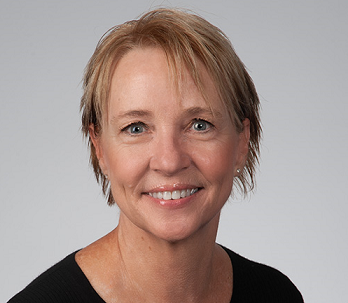Developing the Next Generation of Medical Coders in the Kingdom of Saudi Arabia
AHIMA International is collaborating with King Abdulaziz University (KAU) to review, update, and enhance the university’s current Medical Coding and Billing program. Two coding courses in ICD-10-AM are being developed by AHIMA International’s Andrea Faber, RHIA, CCS, and Karen Carr, MS, BSN, RN, CDIP, CCDS, and May Al Khunaizi, MD, MBBS, FABP, and Robyn Stambaugh, MS, RHIA, CHPS, are establishing a course on healthcare ethics. The international team will be training and assisting the medical coding faculty as KAU develops the next generation of health information (HI) professionals.
Andrea Faber shared details about how this project is progressing at KAU.
Q. Andrea, can you provide more details about the courses being developed for KAU and how they will benefit students seeking to learn about ICD-10-AM?
ICD-10-AM courses we created allow students to learn about these international disease classification standards with a specific understanding of how they apply under this Australian model. Students will comprehensively understand a wide range of health issues and the codes used to represent them.
The courses are comprised of the following:
- Five modules covering introduction to coding, coding of ICD-10-AM diagnosis codes, procedure codes, coding standards, and guidelines, and applying these codes within the revenue cycle.
- Twenty-two chapters covering all body systems, disease processes, and associated interventions.
- One module covering the basic overview of the Australian Refined AR DRG system.
- All material includes practice, homework, and tests of understanding.
The students completing the courses will benefit in several ways, such as from learning clinical coding skills that are valuable in a wide range of health-related fields and with practice training using real world examples. They will also expand career opportunities through their knowledge and certification in ICD-10-AM.
Q. How is ICD-10-AM different from ICD-10-CM?
ICD-10-AM (Australian Modification) and ICD-10-CM (Clinical Modification) are two country-specific modifications of the ICD-10. ICD-10-AM is an adaptation of ICD-10 developed by the Australian Consortium for Classification Development and has been specifically designed to reflect the practice of medicine in the Australian healthcare system, including adding, deleting, or modifying some codes to suit the Australian context better.
ICD-10-CM is the modification of the ICD-10 system used by the United States and is designed to provide a more detailed classification system for the practice of medicine in the US It contains more codes than the base ICD-10 system. The expanded code set allows for greater specificity in code assignment.
Key differences include:
- Scope and volume of codes: ICD-10-CM has more codes than ICD-10-AM due to the specificity required by the US healthcare system.
- Alphanumeric coding in ICD-10-CM: Unlike ICD-10-AM, ICD-10-CM uses alphanumeric codes, meaning that codes can begin with a letter, followed by a digit, and then a combination of both.
- Usage: ICD-10-AM is used in several countries, including Australia, New Zealand, the Kingdom of Saudi Arabia, and Ireland. ICD-10-CM is used exclusively in the US.
Q. After the courses are developed and the training of faculty has occurred, what are the next steps at KAU?
The AHIMA International team will solicit feedback from both faculty and students. Understanding their experiences, challenges, and suggestions for improvement will provide valuable insights for refining this and any future training program.
Q. Beyond KAU, what are the options for other universities and organizations to use these coding courses?
This introductory to intermediate coding course provides the necessary material to take the coding exam administered by the Ministry of Health in the Kingdom of Saudi Arabia. This foundational course could be widely offered with the high demand for skilled coders in the region. AHIMA would welcome the opportunity to work with additional educational institutions and organizations to enhance their health information education.
For more information on how you can work with the AHIMA team, learn more here.

Andrea Faber, RHIA, CCS